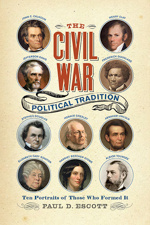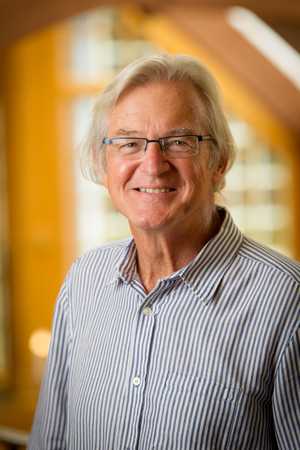Today, we are happy to bring you our conversation with Paul D. Escott, author of THE CIVIL WAR POLITICAL TRADITION: Ten Portraits of Those Who Formed It.
What inspired you to write this book?
For years I’ve written and taught about the Civil War and the issues of slavery, race, and equality. These issues dominated much of nineteenth century politics, and I wanted to share my perspectives on the ten key people covered in the book. It turned out that I had so much to say that the book practically wrote itself. Writing it was a great experience.
What did you learn and what are you hoping readers will learn from your book?
Two things. First, some of the “common knowledge” that most of us have about events and people is wrong or misleading. I believe readers will be surprised by some of the portraits, and I have designed them to be argumentative and provocative. General readers will find much to interest them, and based on years of teaching, I know these portraits can inspire students to dig into major controversies and issues of leadership. Second, I saw, even more than in previous projects, how strong and persistent is the power of culture. The ten leaders in this book were shaped by society’s idea of what was “normal” – on slavery, race, gender, or religion – and often had to fight to make an impact.
What surprised you the most in the process of writing your book?
Time and again I found things in the nineteenth century that are very similar to today. The Civil War brought some great changes – notably the legal end of slavery. But many social patterns have continued to influence us today. I’m talking here about habits of thought, attitudes toward society, ideals, and prejudices. As a society, do we act on the idea that Black people and women are equal? In a real sense, we have not escaped the nineteenth century, and I see this more strongly than I ever did before.
What’s your favorite anecdote from your book?
The personalities of the ten people I profiled are fascinating, and they differed in important respects. All of us need acceptance and some popularity, yet we also hope to stand out in some way. A revered politician like Henry Clay became very dependent on the political world. Despite his love for his wife and for Ashland, his Kentucky home, he could not tear himself away from Washington when he knew he was dying. Some of the reformers, on the other hand, were incredibly independent. Frederick Douglass and Elizabeth Cady Stanton braved enormous disapproval to fight for change that would not come in their lifetimes. For Cady Stanton the explanation was simple: “I was always courageous in saying what I saw to be true, for the simple reason that I never dreamed of opposition.”
What’s next?
I decided to tackle something that really puzzled me. Northern Democrats like New York Governor Horatio Seymour said they wanted to defeat the rebellion, but after victory they wanted a restored Union, unchanged from prewar days. Not only was abolition horrible, in their view, but southern whites also should have all their rights back, right away. After a lot of study and thinking, I feel I now understand their mindset, and I see, too, that it has a lot of connections to our society today. I’m writing about that ideology or way of thinking.





